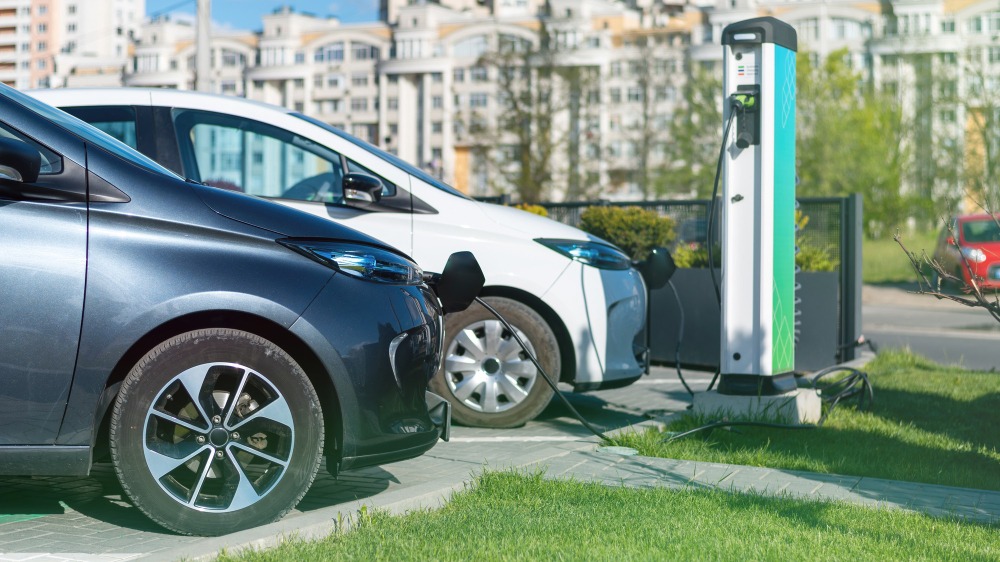As we move further into 2024, the automotive landscape continues to evolve with cutting-edge innovations in fuel-efficient and eco-friendly vehicles. Among the most notable advancements are hybrid and electric cars, both of which offer compelling benefits over traditional gasoline-powered vehicles. But with various options available in the market, how do you decide which one is right for you?
In this comprehensive guide, we’ll dive deep into the differences between hybrid and electric cars, helping you make an informed choice based on your driving habits, budget, and environmental concerns.
Understanding of Hybrid Car & Electric Car
What is a Hybrid Car?
Hybrid cars combine a traditional gasoline engine with an electric motor, which allows for better fuel efficiency compared to conventional vehicles. There are two main types of hybrid vehicles:
- Full Hybrids (HEVs): These can run on the gasoline engine, the electric motor, or both simultaneously. The car switches between the two based on driving conditions, optimizing fuel efficiency.
- Plug-In Hybrids (PHEVs): These have larger batteries that can be charged via an external outlet, allowing the car to drive short distances on electric power alone before the gasoline engine kicks in. PHEVs offer the best of both worlds — electric driving for short commutes and gasoline power for longer trips.
What is an Electric Car (EV)?
Electric vehicles (EVs) are fully powered by electricity, meaning they have no internal combustion engine (ICE). Instead, EVs rely on a battery pack that stores electric energy to power an electric motor. These vehicles must be plugged in to recharge their batteries, and they don’t use any gasoline or produce tailpipe emissions.There are two primary types of electric cars:
- Battery Electric Vehicles (BEVs): These are fully electric cars with no gas engine, powered entirely by electricity from the grid.
- Extended-Range Electric Vehicles (EREVs): Similar to BEVs, but they include a small internal combustion engine that acts as a generator to extend the driving range once the battery is depleted.
Hybrid Vs. Electric Cars: Key Differences
Hybrid and electric cars are both environmentally friendly alternatives to traditional gasoline-powered vehicles, but they differ in how they operate and their overall impact.Here is the key difference between these two cars.
| Feature | Hybrid Cars | Electric Cars (EVs) |
| Power Source | Gasoline engine + Electric motor (HEVs) or Gasoline engine + Electric motor with rechargeable battery (PHEVs) | 100% Electric motor powered by a battery |
| Fuel Efficiency | Higher than conventional cars, but still reliant on gasoline | Zero gas consumption, high efficiency |
| Emissions | Lower emissions than gas-only cars, but still some tailpipe emissions | Zero tailpipe emissions |
| Fueling | Gasoline can be used to refuel, with some electric charging | Requires regular charging at home or public stations |
| Driving Range | 400-600 miles, depending on model and battery size | 150-370 miles (depending on battery capacity) |
| Charging | No need to plug in for full hybrids (PHEVs can plug in) | Must be plugged in for every recharge |
| Maintenance Costs | Generally lower than EVs but higher than traditional gas vehicles | Fewer moving parts, so lower maintenance costs |
| Upfront Cost | More affordable than EVs but generally higher than gas vehicles | Generally more expensive than hybrids upfront |
Advantages and Challenges of Hybrid Cars
| Category | Advantages of Hybrid Cars | Challenges of Hybrid Cars |
| Extended Range | Hybrids combine both gasoline and electric power, allowing for longer trips without the need for frequent charging. They can refuel at any gas station, making them ideal for long-distance drivers. | N/A |
| Fuel Efficiency | Even without plugging in, hybrids offer better fuel efficiency than conventional gas-powered vehicles. Full hybrids typically achieve 40-50 MPG, while plug-in hybrids can perform even better in electric-only mode. | Fuel Efficiency Variability: Driving habits and conditions, such as aggressive driving or highway use, can affect fuel efficiency. |
| Lower Cost of Entry | Hybrid cars are often more affordable than electric vehicles, both in terms of initial price and available incentives. This makes them a cost-effective eco-friendly option. | Battery Replacement: Hybrid batteries can degrade over time and may need to be replaced, which can be expensive. However, many hybrids come with long warranties for the battery system. |
| No Charging Stations Required | With hybrids, there’s no need to worry about charging infrastructure. They can run on gasoline when the electric charge is depleted, offering more convenience compared to electric vehicles. | Complex Maintenance: Hybrids have more components to service, including the gasoline engine, electric motor, and battery system, which can lead to higher repair costs than conventional cars. |
Advantages and Challenges of Electric Cars
| Category | Advantages of Electric Cars (EVs) | Challenges of Electric Cars (EVs) |
| Zero Emissions | EVs produce zero tailpipe emissions, making them the most environmentally friendly option. They reduce air pollution and greenhouse gases. | N/A |
| Lower Operating Costs | EVs have fewer moving parts than hybrids or gasoline cars, leading to lower maintenance and repair costs. Electricity is also cheaper than gasoline, saving money in the long run. | Higher Upfront Costs: EVs generally cost more initially than hybrid or gas-powered vehicles, although costs are decreasing over time. |
| Tax Incentives and Rebates | Many governments offer tax credits, rebates, or access to carpool lanes, helping to offset the higher purchase price of EVs. | Limited Range and Charging Infrastructure: EV range typically varies between 150-370 miles per charge, and charging stations may not be readily available everywhere. |
| Quiet and Smooth Ride | EVs offer a quiet and smooth driving experience, with no internal combustion engine, providing a peaceful and responsive ride. | Long Charging Times: Charging an EV, even with fast chargers, takes longer than refueling a gasoline or hybrid vehicle. |
| Charging Convenience | Home charging is convenient, allowing EV owners to recharge overnight. There are also expanding networks of public charging stations for longer trips. | Battery Degradation: Over time, EV batteries degrade, reducing driving range. However, warranties on EV batteries are typically provided. |
Which One is Right for You?
Choosing between a hybrid and an electric vehicle depends on your driving needs, lifestyle, and budget. Here are a few key considerations to help you decide:
Choose a Hybrid if:
- You frequently drive long distances and don’t want to worry about range anxiety.
- You don’t have easy access to charging stations or want the flexibility to fuel your vehicle at any gas station.
- You’re looking for a lower-cost option compared to EVs.
Choose an Electric Car if:
- You want to eliminate your carbon footprint and are committed to reducing emissions.
- You have access to home charging or a reliable network of public charging stations.
- You prefer a smooth, quiet driving experience with low operating costs.
Conclusion
In 2024, both hybrid and electric cars offer incredible benefits, and deciding which is right for you depends on your personal preferences, driving habits, and budget. Hybrid vehicles provide an excellent option for those who want a more eco-friendly car without worrying about charging infrastructure or range limitations. On the other hand, electric vehicles are the future of the automotive industry, providing a completely emissions-free experience with lower operating costs over time.
By weighing the pros and cons of each option, you can make a decision that aligns with your lifestyle and eco-consciousness, ensuring that you drive a car that not only meets your needs but also contributes to a more sustainable future.


